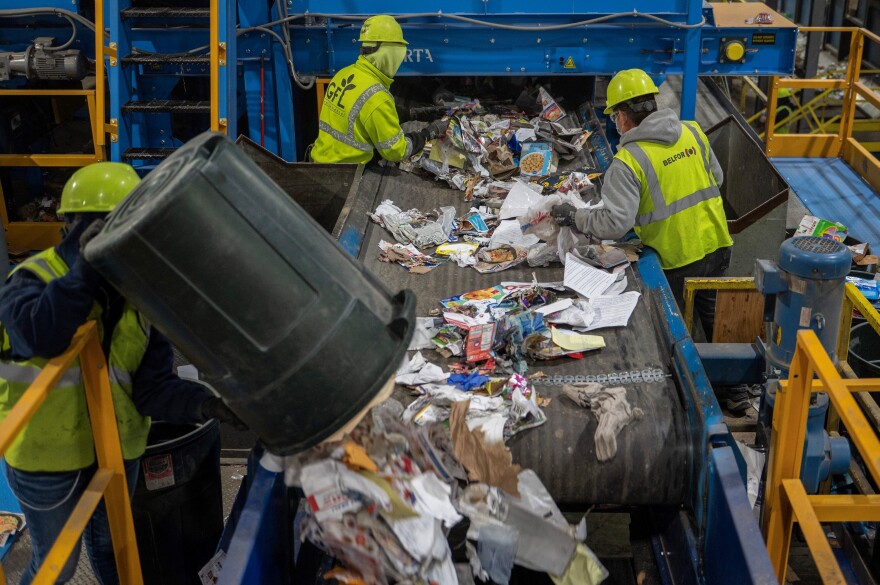About 80% of what is sent to Kansas City’s two area recycling centers is able to be recycled, according to an article published in the Kansas City Star.
Natalie Wallington, a service reporter with the Star, wrote the article after visiting the facilities in an effort to learn more about what materials are actually able to be recycled at them.
“Most of those things [that can’t be recycled] are going to be food, diapers, sports equipment, you know, crazy stuff that wouldn't have been recyclable anyway," Wallington says.
Another reason why some viable materials are not recycled is because of changes in what materials recycling facilities are able to sell after processing.
“Markets change over time,” says Matt Riggs, an environmental planner with MARC’s solid waste division. “Over the last several months we've been hearing, ‘We're going to be taking a lot less than what we used to.’”
Riggs says that these market changes primarily affect plastic recyclables. While MARC is working to update its ReycleSpot website, which offers guidance on what Kansas City recycling facilities will accept, residents should mainly be recycling plastic items like bottles and bins.
“In terms of your curbside collection, if it's a bottle, like a pop bottle, a milk jug, a detergent bottle, or if it's a tub, like sour cream, butter, yogurt... it's recyclable,” says Riggs. “It also needs to be cleaned, but not perfectly.”
Both Wallington and Riggs stressed that one of the biggest issues with item becoming unusable was due to food or beverage waste contaminating the item.
- Natalie Wallington, service reporter with the Kansas City Star
- Matt Riggs, environmental planner with MARC’s solid waste division







